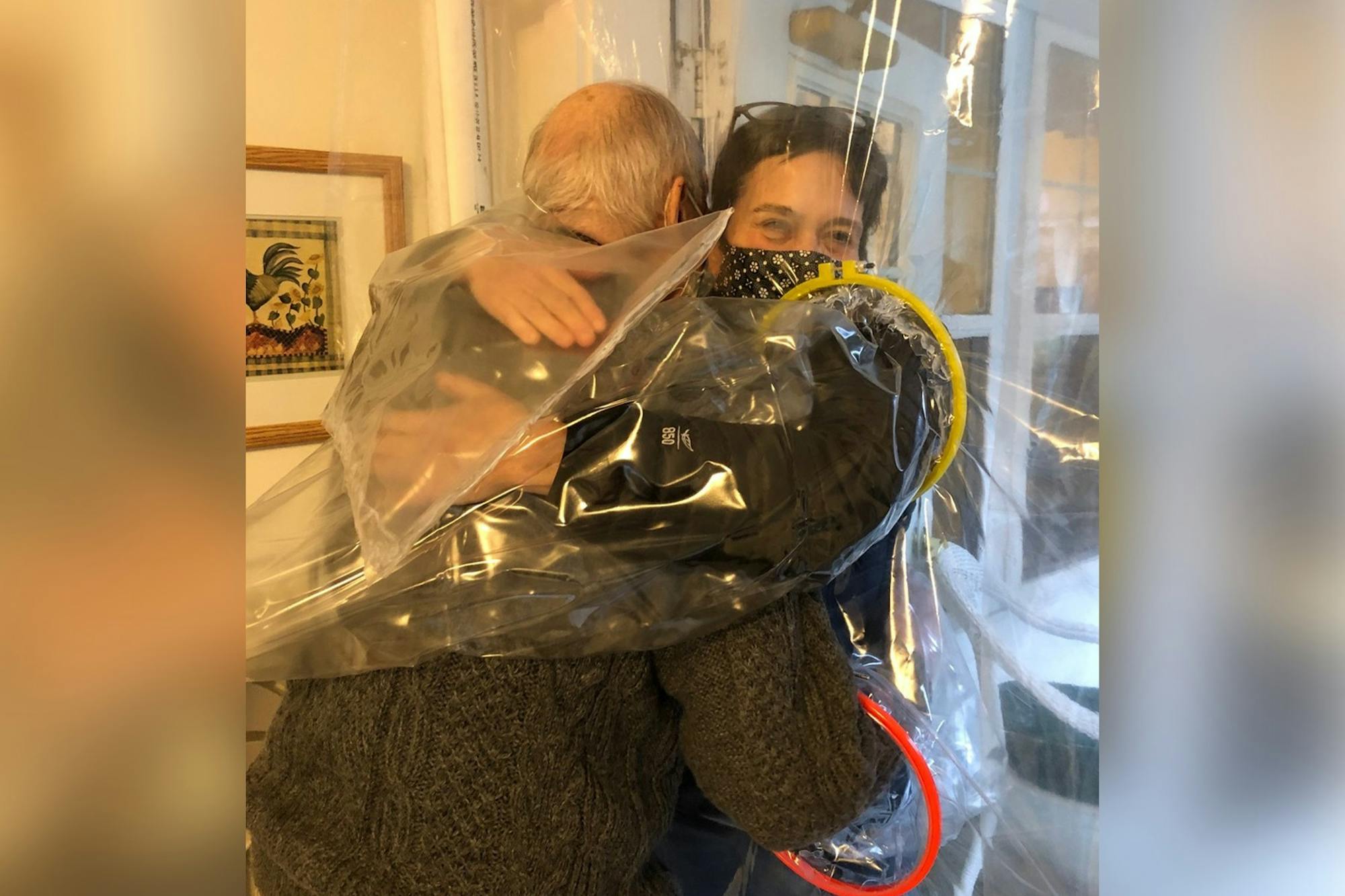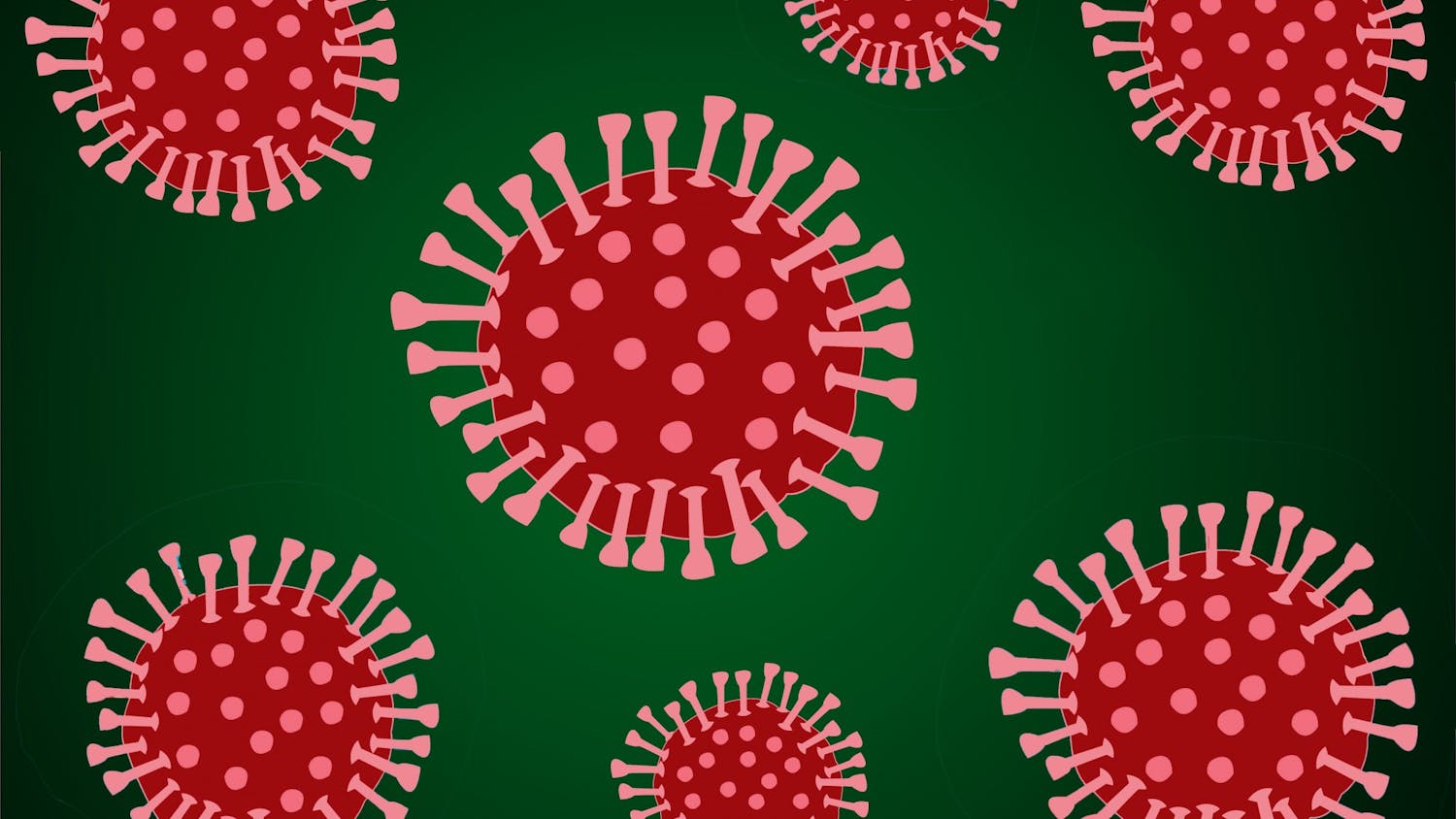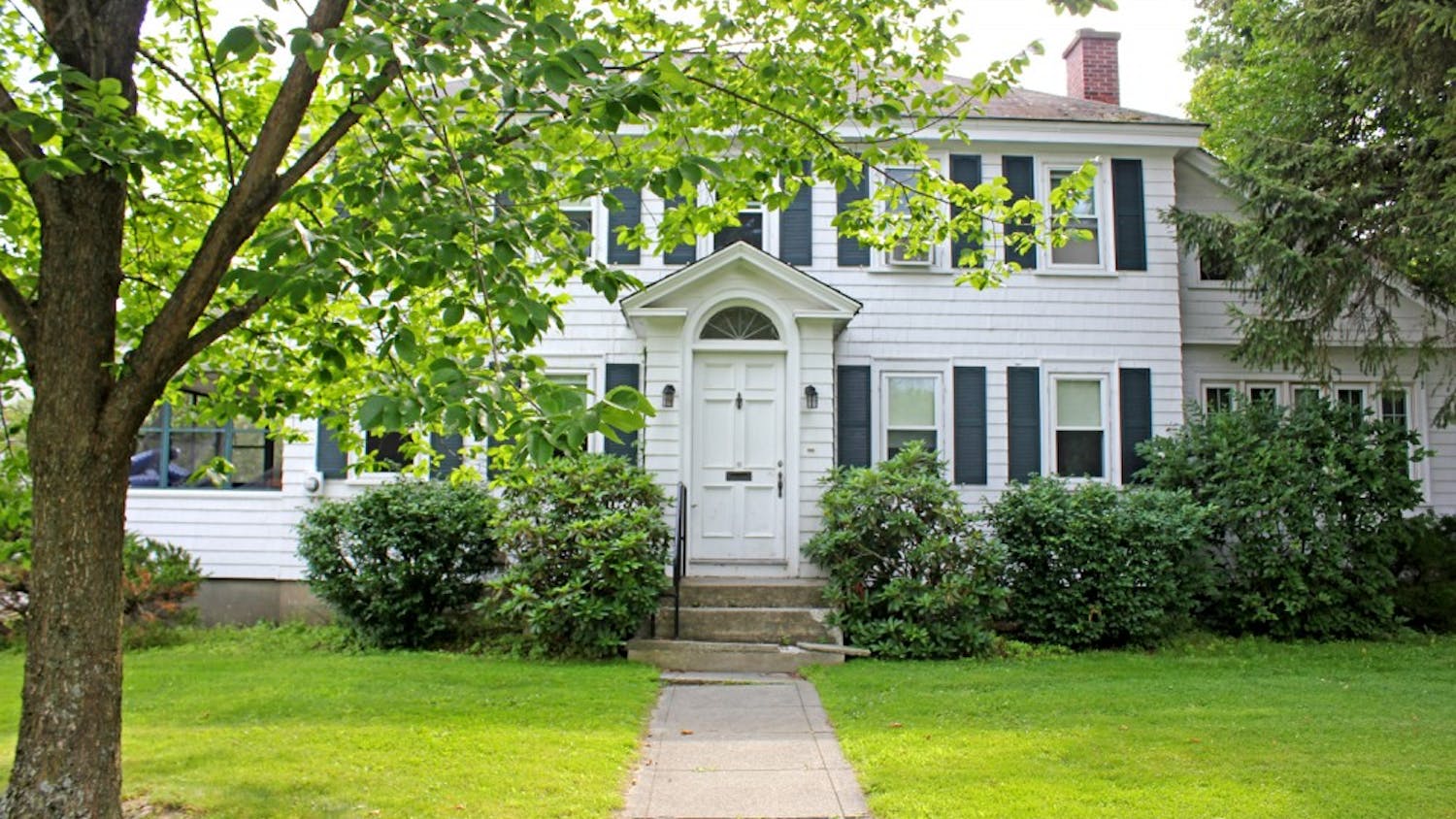As they continue to operate under strict COVID-19 measures, assisted-living facilities in the Upper Valley are busy vaccinating residents and staff after a difficult year of sickness and isolation.
At the local nursing and retirement homes Hanover Terrace, Wheelock Terrace and Kendal at Hanover, most residents and staff have received at least one shot of the COVID-19 vaccine, according to administrators at all three facilities. Nearly all residents of Hanover Terrace and Wheelock Terrace have received both doses, while second shots are still underway at Kendal at Hanover. At all three facilities, a select few residents and staff members have declined vaccines on medical, political or religious grounds.
For Hanover Terrace, the vaccines arrived amid a particularly devastating winter. In December, a COVID-19 outbreak ravaged the nursing home, leading to seven deaths and infecting 68 of the facility’s 74 residents.
Hanover Terrace’s temporary administrator Martha Ilsley said that 70 residents have since received the vaccine, as well as about half of the staff. Some staff, she said, are “hesitant” about receiving the vaccine, while others are not yet eligible because they are recovering from COVID-19.
The December outbreak at Hanover Terrace likely began with an office worker who tested positive on Nov. 22, according to Ilsley. In response, Hanover Terrace tested all staff, uncovering two more positive, asymptomatic individuals. By the beginning of December, a few residents had tested positive, and more than 110 residents, staff and outside “essential vendors” tested positive at the outbreak’s height.
Director of geriatrics at Dartmouth-Hitchcock Medical Center and Hanover Terrace medical director Dr. Daniel Stadler noted that while all seven of the residents who died tested positive for a COVID-19 infection, he was unable to conclude in all cases whether the virus was the direct cause of death, or whether it even “accelerated their dying process.”
During the outbreak, Ilsley said that Hanover Terrace split residents into three cohorts based on positive, negative or rapid-positive status — the last of which is more prone to false positives — and that residents were confined to their rooms and visitation was suspended.
“There were some days that were quite emotional,” Ilsley said. “We have been surrogate family members for our residents since last March; a loss is very real to us.”
The outbreak also forged a new sense of “allegiance” among staff, she added. She called the staff who worked through the outbreak “true heroes.”
Despite the dire circumstances, Stadler said that while working at the facility, he was struck by the residents’ calm demeanor.
“I walked into rooms filled with people who were COVID positive, frail and [suffering from dementia], most of whom were utterly unchanged from their normal self, watching television or eating lunch calmly,” he said.
He partially attributed the outbreak to a New Hampshire requirement that facility-wide testing be processed by a state lab once the outbreak started, as opposed to the lab at DHMC.
“The five-day lag was the game changer,” Stadler said. He noted that because the state lab was dealing with multiple outbreaks and the Thanksgiving holiday, by the time he heard about many positives, the virus had been spreading for five days.
Ilsley said that keeping families and the Upper Valley community informed with “transparent” communication was, and remains, a top priority. During the outbreak, she said that Hanover Terrace shared daily updates on the situation with the Valley News, held Zoom calls twice a week with residents’ family members and allowed visitors to connect with their loved ones through the facility’s windows.
The local community stepped in to help, too.
“One day, the fire department and EMS from Hanover came over to shovel off the roof,” Ilsley said, while others dropped off lunches, juices and snacks for tired staff — many of whom were working “10-hour days” with few days off. “The community support was overwhelming and helped us get through this.”
Jeff Roosevelt, director of marketing and community relations at Kendal at Hanover, which has about 400 residents in both independent and assisted living, also expressed gratitude for the local community.
Roosevelt said that Hanover Helpers, a program started by several Tuck students in the spring, has delivered groceries to vulnerable residents during the pandemic. He added that Kendal at Hanover maintains a “strong connection” with Dartmouth — many of the facility’s residents are alumni or family of College employees.
Stew Wood ’56, a resident at Kendal at Hanover, said that he and his wife are set to receive their second shot on Friday.
“Many of us are in our eighties and nineties, and some are over 100,” he said. “While [the vaccine] probably won’t change our behavior here, it does mean we are that much more protected than we were before. For our kids, that is great news — they are significantly relieved.”
In addition to sickness itself, Wood noted that loneliness has been one of the “harshest results” of the pandemic.
“There are a lot of people here whose husbands or wives have died, so they have been in their apartments, isolated,” Wood said. “Picking up their meals or mail is the only chance they have to see anybody.”
To cope, connecting digitally with friends and loved ones has become a popular recourse for residents at Kendal at Hanover, Wood said. Once a week for an hour, Wood and his wife log on to Zoom for a “visit” with their three children and, sometimes, grandchildren. He has also video called with a former Dartmouth classmate who has Parkinson’s disease. The video chat allows him to connect visually with his friend, who has difficulty speaking.
Wood added that he knows the pandemic has been especially difficult for some of his fellow residents at Kendal. He said one spoke with him about how “depressing” the year has been, expressing, “‘I doubt that I’ll ever get to see my children again.’”
Executive director of Wheelock Terrace Melissa Suckling said that the pandemic has been “very, very emotionally draining” for residents. In order to combat fatigue, Suckling said Wheelock Terrace reminds families that they can send gifts or cards to their loved ones, or reach out digitally.
“We do a lot of FaceTimes; there has been a significant technology boom,” Suckling said. She added that several families have purchased iPads for their loved ones, or more simple tablets called GrandPads.
Suckling added that the facility’s staff have worked to provide residents with plenty to do throughout the last several months since doors have “remained locked” to most visitors. Those who do stop by are screened according to New Hampshire medical guidelines and must wear a mask.
Suckling said that residents have participated in socially distanced exercise groups and events like a holiday party on Christmas Eve, which featured presents and caroling.
For residents with dementia or Alzheimer’s disease, the pandemic has proven especially challenging. One-third of the residents at Wheelock Terrace are in memory care, Suckling said, and live in secure quarters for their own safety.
“[Residents with dementia or Alzheimer’s disease] have more difficulty with seeing their loved ones and not being able to give them a hug,” Suckling said. “They don’t understand the context that there is a virus and they can’t go give their daughter, husband or wife a hug.”
In response, Suckling said their marketing director built a plastic “hug wall” that allows residents to embrace loved ones without the risk of spreading infectious diseases.
At Kendal at Hanover, according to Roosevelt, staff have set up “visitation stations,” sanitized spaces that allow family members and friends to visit with residents for up to 45 minutes while wearing masks and remaining at a safe distance.
After a difficult few months, and with vaccinations underway, Wood said that he is “eager” for summer. He even hopes to play golf again soon, which he enjoyed doing last summer before cases spiked in Grafton County.




